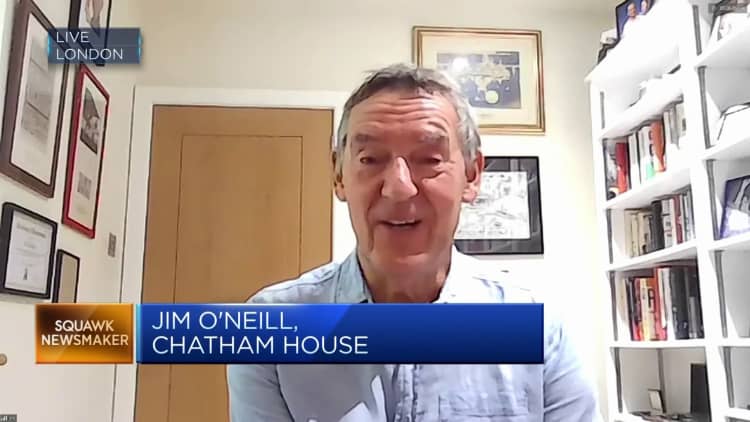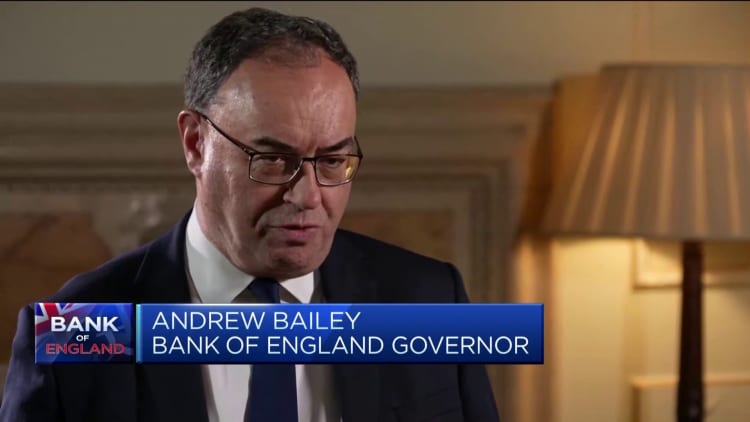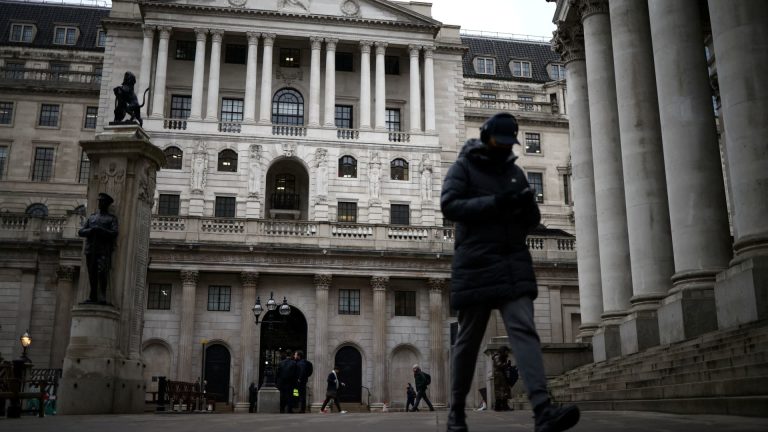LONDON — The Bank of England’s rapid pace of bond sales is creating a “selling gold at the bottom” moment for investors, according to Christopher Mahon, head of dynamic real return at Columbia Threadneedle.
In the aftermath of the 2008 financial crisis, the central bank spent 13 years buying up £895 billion ($1.12 trillion) of U.K. government bonds — known as gilts — while interest rates were historically low.
Now, despite the fact that the value of gilts has fallen dramatically since then, the central bank is unwinding those holdings, and fast.
Among all the central banks, the Bank of England has been the most aggressive in selling the bonds purchased to bolster the economy during the quantitative easing era, according to Mahon.
“Selling bonds on this scale has never been done before, nor has it been tried when bond markets have had to digest the ramifications of both high inflation and substantial rate hikes,” he said in a video blog last week.
The BOE is crystallizing massive losses as a result of the sales, which are being backstopped by the U.K. Treasury. In late July, the central bank estimated that it would require the Treasury to indemnify £150 billion ($189 billion) of losses on its asset purchase facility (APF).
“Our analysis suggests the reduction has been the equivalent of around 7.5% of all outstanding government debt,” Mahon said. “This is a huge amount, and is effectively additional issuance that the market has had to digest.”
Yields on benchmark 10-year U.K. gilts have risen from around 2.99% in early February to a 13-year high of almost 4.75% in mid-August, before moderating slightly. Yields move inversely to prices.
Columbia Threadneedle’s analysis suggests that the pace of bond sales is 70% faster than that of the U.S. Federal Reserve and around twice the rate of the European Central Bank.
“It’s unclear to us why the Bank has been so hasty. The fast pace of these sales has been pushing down on gilt prices, it’s been worsening the losses for the taxpayer, and worse, it crystallizes what would have been paper losses into a drain that the U.K. Treasury has to make good,” Mahon said.
“For markets, the pace of such hefty selling pressure by the U.K. central bank is in our view, one factor why gilts have struggled this year and struggled to find buyers.”
Investment opportunity?
The U.K. certainly has a shaky track record when it comes to the mass disposal of assets.
Between 1999 and 2002, the U.K. controversially offloaded 401 metric tons of gold — out of a total holding of 715 tonnes — at what turned out to be the bottom of the market for the precious metal.

For Mahon, there are clear similarities in how the Bank of England is now disposing of its gilt stock.
“Similar pre-announcements of sales are used which act to depress the prices, similar disinterest is expressed by the Bank of England in the prices achieved or the scale of the losses crystallized, and similarly, there is a big fear in the market that the pace of the sales could even increase,” he said.
“In our view, the actions of the … Bank of England could again mark the bottom of the market.”
A spokesperson for the Bank declined to comment when contacted by CNBC.
Mahon added that, with inflation coming down and peak interest rates in sight, this could provide an opportunity for investors and “is one of the reasons why we think that gilts and indeed fixed income are very attractively priced.”
Next meeting
The central bank’s Monetary Policy Committee is next due to meet on Sept. 21. At its last meeting, the committee did not provide any further information on its plans for gilt sales, but Deputy Governor Dave Ramsden in July suggested that the pace of quantitative tightening could be set to increase.
In a research note last month, BNP Paribas economists predicted that the central bank will hike the pace of gilt sales from £80 billion a year to £95 billion.
The Bank of England, for its part, disputes that the asset sales are affecting markets in any substantive way. In his July speech, Ramsden said analysis of the evidence to date suggested that “QT [quantitative tightening] effects on gilt yields, while greater than zero, appear to be materially smaller than the effects of QE [quantitative easing].”
“Given our experience so far, as a very rough indication of scale, Bank staff estimate that a one-off additional £80 billion of QT relative to expectations is likely to increase 10-year gilt yields by less than 10 bps in prevailing market conditions,” Ramsden added.

Read the full article here









